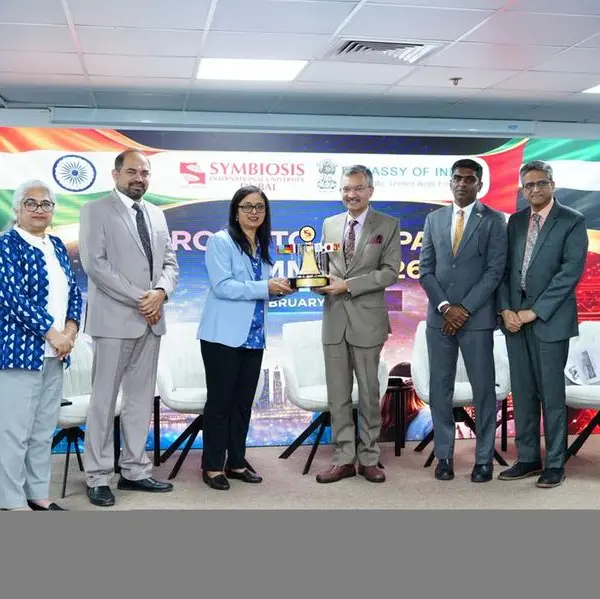Comprehensive cross-country study assesses attitudes and appetite for digital in all areas of life in Egypt
Cairo, Egypt - More than two-thirds of surveyed consumers in Egypt would rather use mobile phones to make payments than plastic cards, Mastercard impact of Innovation study[i] reveals. Mobile phones are the preferred device of payment for 70% of respondents who participated in the study, followed by tablets at 44%, signaling a shift in the country's payment landscape towards digital payments.
The Mastercard impact of Innovation study surveyed 23,000 consumers in 23 different countries across the Middle East, Africa and Europe about their attitudes to digital technology. It found that while in Africa and the Middle East over 70% said they were ready to pay with their smartphones, Western Europeans have some way to go - only two fifths (40%) said so. However, when asked about new ways to pay, consumers across all regions chose their smartphone as an alternative to the plastic card. The study in Egypt was conducted among a target group of 1,000 urban consumers from across the country, including both male and female respondents, aged 20-50 years, with different education background and professional experiences.
The Mastercard impact of Innovation study was released on the sidelines of the Mastercard Innovation Forum 2016, which opened today in Budapest, Hungary with the participation of more than 500 attendees from Middle East and Africa, Central East Europe, Russia, Turkey and Ukraine.
"The results of the Mastercard impact of innovation study shows how digital technology is increasingly taking center stage in the lives of Egyptians, with smartphones now viewed as a viable substitute for cash and cards," said Magdy Hassan, General Manager - Egypt and North Africa, Mastercard. "The fact that consumers are becoming more tech-savvy and more receptive to innovative technology, indicates not only the huge potential for digital services in the Egyptian market, but also the opportunity that exists for public and private players to come together and use the power of these technologies to drive greater financial inclusion in Egypt."
On the whole, Egyptian consumers have a positive attitude towards digitalization and its impact on society. More than two thirds of Egyptian consumers are satisfied with digitalization and believe that innovation has positive impact on society with four out of five of all respondents believe that digital services will be used by more and more people and will spread to more areas of life . At the same time, Smartphone's penetration is well-developed along with Personal Computers, laptops and tablets. 93% of respondents personally use their smartphones and 68% use tablets, with 2 out of 5 using their smartphones as primary devices.
The research also shows that 56% of surveyed respondents in Egypt use digital channels in shopping online while 39% use them to make bill payments, with speed and simplicity cited as the main reasons of why they prefer the digital way to access services by 75% and 66% of respondents respectively. When asked about ways to increase usage of payment applications, 44% of respondents overwhelmingly stressed on greater security and lower costs as being key factors in driving enhanced adoption and usage. Education on digital services and creating more user-friendly digital experiences were also considered important by 35% of respondents.
The study results also indicate that public education, healthcare and public transport were identified as the areas where improvements in digital services are most needed. Consumers who live in technologically less developed countries tend to be more enthusiastic about digital innovation than in markets where it is readily available. Western Europe has the largest ratio of those resistant to digital change (17%), while Central and Eastern European countries and those in the Middle East and Africa have the highest number who actively embrace new technology.
While enthusiastic about innovation, consumers across regions want security, especially when it comes to making payments. Consumers unanimously agreed that bank account security is their absolute priority when it comes to digital payments, followed by the security of their personal data. They also value the speed and simplicity of the payment process.
Mastercard Impact of Innovation Study - Key findings
Western Europe (France, Germany, Italy, Sweden and the UK)
· Consumers in Western Europe tend to be moderate when it comes to digital innovation. Larger proportions of resistants' (17%) are paired with a lower rate of 'eager promoters' (11%).The percentage of people ready to pay by smartphone is around 40%, however Sweden stands out - over 70% are ready. Western Europeans trust biometric authentication such as fingerprint (38%) more than they trust PIN (30%)
Central Eastern Europe (Austria, Bulgaria, Czech Republic, Croatia, Hungary, Poland, Romania, Serbia, and Slovakia)
· Central Eastern Europe occupies the middle ground in many aspects. With the highest rate of 'drifting followers' (46%) similar to Western Europe, but with a much lower rate of 'resistants' (11%).Mobile payment readiness is 57%, and fingerprint authentication (37%) is trusted more than PIN (33%)
Russia, Ukraine, Turkey
· Regarding the further spread of digital services Russia, Ukraine and Turkey are the most positive: 4 out of 5 consumers think that they will be available for more people in the future. Mobile payment readiness is an average 64%, and this region boasts the highest number of 'eager promoters': an impressive 27%. People from these countries trust fingerprint the least - only 30% said so, but they still prefer it to PINs. SMS code leads with40%. Demand exists for more innovation in automobile and transport industries.
Middle East & Africa (Egypt, Kenya, the Kingdom of Saudi Arabia, South Africa and the United Arab Emirates)
· Consumers in the Middle East and Africa are optimistic about the effects of digitalization and more open towards innovative solutions: Mobile payment readiness is the highest at 73% and the region has the highest ratio of enthusiastic followers (33%). People here do not generally trust PIN codes for payment (20%), however fingerprint enjoys more confidence (30%) and the list is topped by SMS code (40%).This region demands innovation in most areas: not only education, healthcare and transport, but also in commerce, finance, automobile, hotel and restaurant industries.
-Ends-
The Mastercard Impact of Innovation study looked into the perception of digitalization and its effects on society, personal preferences in using digital technology for payment, and payment authentication. It also showed how resistant or willing respondents were in accepting and actively using digital technologies.
[1] The survey was commissioned by Mastercard and carried out by IPSOS Research in the summer of 2016. The survey gathered data from internet users with bank accounts between the age of 20-50 in Mastercard's 4 global regions: Western Europe (countries: France, Germany, Italy, Sweden, and the UK); Central Eastern Europe (countries: Austria, Bulgaria, Czech Republic, Croatia, Hungary, Poland, Romania, Serbia, and Slovakia); Russia, Turkey*, and Ukraine*; and the Middle East and Africa (countries: Egypt*, Kenya*, the Kingdom of Saudi Arabia, South Africa*, and the United Arab Emirates). In countries marked with * above, the survey is representative of Internet users, while in all the other countries the survey is representative of the whole population. Sample structure: N=1000 respondents per country, representative sample of 20-50 aged online urban population by gender, age and region. Methodology: online self-completed interviews via IPSOS access panel. Questionnaire: 20-minute self-completed online questionnaire.
About Mastercard:
Mastercard (NYSE: MA), www.mastercard.com,is a technology company in the global payments industry. We operate the world's fastest payments processing network, connecting consumers, financial institutions, merchants, governments and businesses in more than 210 countries and territories. Mastercard products and solutions make everyday commerce activities - such as shopping, traveling, running a business and managing finances - easier, more secure and more efficient for everyone. Join the discussion on the Beyond the Transaction Blog and subscribe for the latest news on theMEA Engagement Bureau.
Mastercard Communications Contact
Sarah Youssef, +201206680178
sarah.youssef@mastercard.com
© Press Release 2016


















